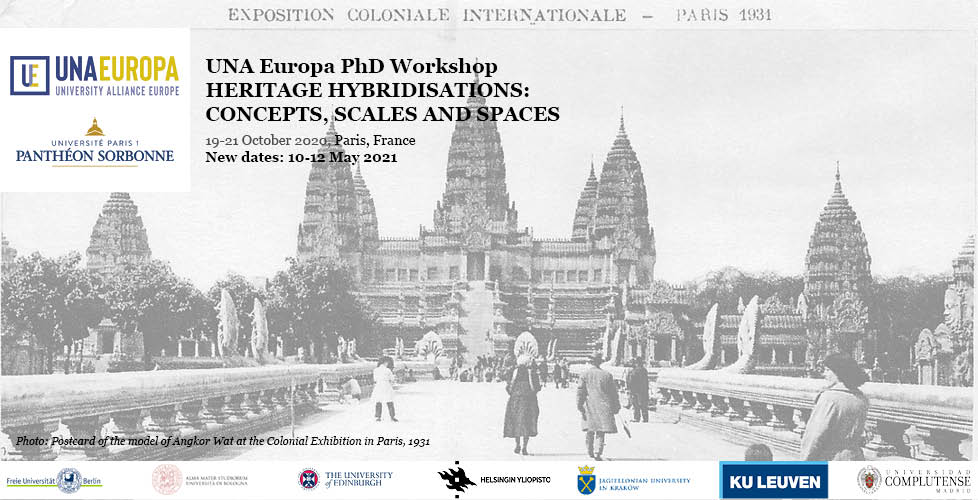
|
|
|
Online Activities > Online lecture - Cornelia ReiherWe are happy to announce our next online activity: Hybrid cultural heritage and rural revitalization in Japan: The commodification of intangible cultural property and “traditional” local crafts, online lecture by Professor Cornelia Reiher (Freie Universität Berlin) – April 27, 2021, 11h CEST. The lecture will be introduced by Professor Jutta Eming. Information on how to join: ZOOM link: https://zoom.univ-paris1.fr/j/91556359167?pwd=dFpwVGd1MnJ6NlhwTmF0WWNxT0tJZz09 Passcode: 847211 ID: 915 5635 9167 National revitalization programs and policies for rural areas in Japan are based on the concept of homogenous and single-issued local identities. This approach has proved to be inapt to fight regional inequality, but revitalization strategies in rural Japan are still based on a concept of local identity that reduces local complexity to one or two features / products. Often, this approach promotes “traditional” crafts like pottery, lacquer ware, Japanese paper (washi) or textiles. Japanese crafts are admired for their high quality and those preserving traditional crafts techniques are designated bearers of intangible cultural property (or “living national treasures”) under the national Law for the Protection of Cultural Properties. This title comes with privileges, but also constrains creativity and excludes new and innovative actors. In my presentation, I compare two towns in rural Kyushu and their different approaches to “traditional” crafts and art in their revitalization strategies to discuss how cultural heritage can enable or constrain rural revitalization in Japan. Although both approaches to crafts and cultural heritage are different, I argue that they produce hybrid cultural heritage for the sake of its commodification. While Arita (Saga Prefecture) is famous for its 400 years of porcelain production and home of several “living national treasures”, Taketa (Oita Prefecture) has no acknowledged crafts tradition. However, the town’s mayor is inviting urban-rural migrants with new ideas for the revitalization / establishment of a local crafts tradition in order to attract tourists and to revitalize the local economy. The emerging hybrid forms of cultural heritage in both cases will shed light on the interrelations of national and local policymakers, craftsmen and the institutions shaping and preserving cultural heritage in Japan.
Kakiemon porcelain workshop in Arita, Japan, c. Cornelia Reiher, 2006 Cornelia Reiher is professor of Japanese Studies at Freie Universität Berlin and vice director of the Graduate School of East Asian Studies. Her main research interests include rural Japan, food studies, globalization and science and technology studies. Her recent publications include a special issue on fieldwork in Japan (2018), book chapters on transnational protest movement(s) in Asia (2019), and urban-rural migration in Japan (2020) and the methods handbook Studying Japan: Handbook of research designs, fieldwork and methods (2020, co-edited with Nora Kottmann).
Jutta Eming is professor for medieval German literature at the Institute for German and Netherlandic Philology, Freie Universität Berlin since 2010. Her research interests include genre theory and gender, emotionality, the marvelous, premodern temporalities, and premodern drama. Among her most recent publications are the monograph Emotionen im ‘Tristan’. Untersuchungen zu ihrer Paradigmatik (Göttingen 2015), the co-edited volume Marsilio Ficino in Deutschland und Italien. Renaissance-Magie zwischen Wissenschaft und Literatur (Wiesbaden 2017) and the forthcoming co-edited volume Things and Thingness in Medieval and Early Modern Literature and the Visual Arts (Berlin/Boston 2021). |
| Online user: 2 | Privacy | Accessibility |

|


